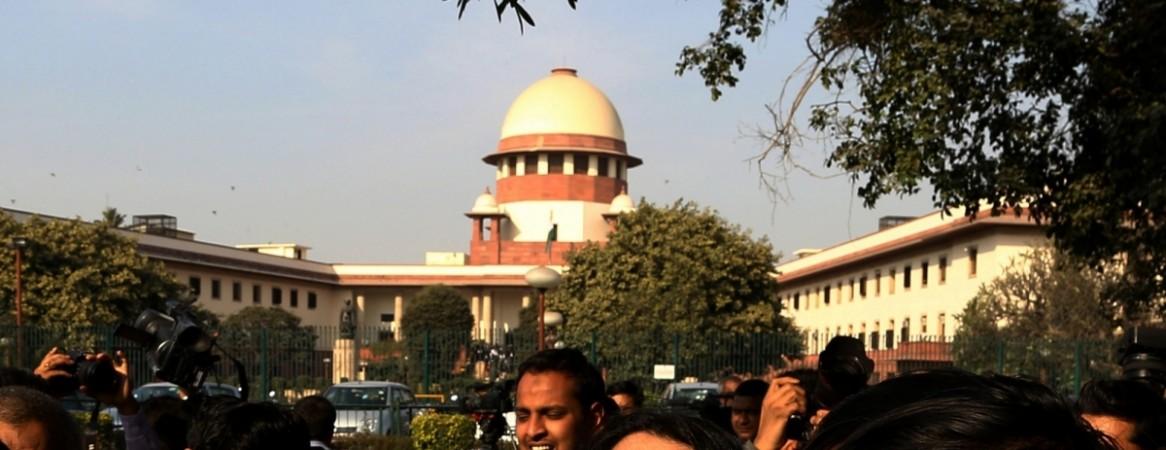
In a landmark judgment, the Supreme Court has declared that a child born from the marriage between a Muslim man and a Hindu woman is legitimate and is entitled to the father's share of property.
The ruling was made on Tuesday by a two-member bench comprising Justices NV Ramana and Mohan M Shantanagoudar.
The ruling by the two judges read, "The marriage of a Muslim man with an idolater or fireworshipper is neither a valid (sahih) nor a void (batil) marriage, but is merely an irregular (fasid) marriage. Any child born out of such wedlock (fasid marriage) is entitled to claim a share in his father's property."
According to a report by IANS, Justice Shantanagoudar said, "It would not be out of place to emphasise at this juncture that since Hindus are idol worshippers, which includes worship of physical images/ statues through offering of flowers, adornment, etc., it is clear that the marriage of a Hindu female with a Muslim male is not a regular or valid (sahih) marriage, but merely an irregular (fasid) marriage."
The top court also said that in an irregular marriage, the wife cannot inherit the husband's property but can lay claim on the dower.
The Supreme Court made this ruling with reference to a property dispute case of Mohammed Ilias and Valliamma whose son Mohammed Salim filed a plea to lay claim on his late father's ancestral property. The Kerala High Court ruled that the child borne out of the marriage is legitimate.
However, cousins of Mohammed Salim appealed against the verdict of the Kerala High Court. A Times Now report claimed that the cousins, who wanted the ancestral property, said that the marriage of Mohammed Ilias and Valliamma was not legal and hence the child out of the marriage was not legitimate.
The legal effect of an irregular marriage is that in the case of consummation, though the wife is entitled to get dower, she is not entitled to inherit the properties of the husband. But the child born in that marriage is legitimate just like in the case of a valid marriage, and is entitled to inherit the property of the father," the court further added in its ruling.
They said that marriage is an irregular one because the Hindu religion believes in idol worship while Islam doesn't.
The court concluded, "He (Shamsuddin) is the legitimate son of Mohammed Ilias, and consequently is entitled to inherit the shares claimed in the estate of his father. Under these circumstances, in our considered opinion, the trial court and the high court were justified in concluding, based on the preponderance of probabilities, that Valliamma was the legally wedded wife of Mohammed Ilias, and the plaintiff (Shamshuddin) was the child born out of the said wedlock."















